When the U.S. invaded Canada
President Trump has talked of annexing our northern neighbor. We tried to do just that in the War of 1812.
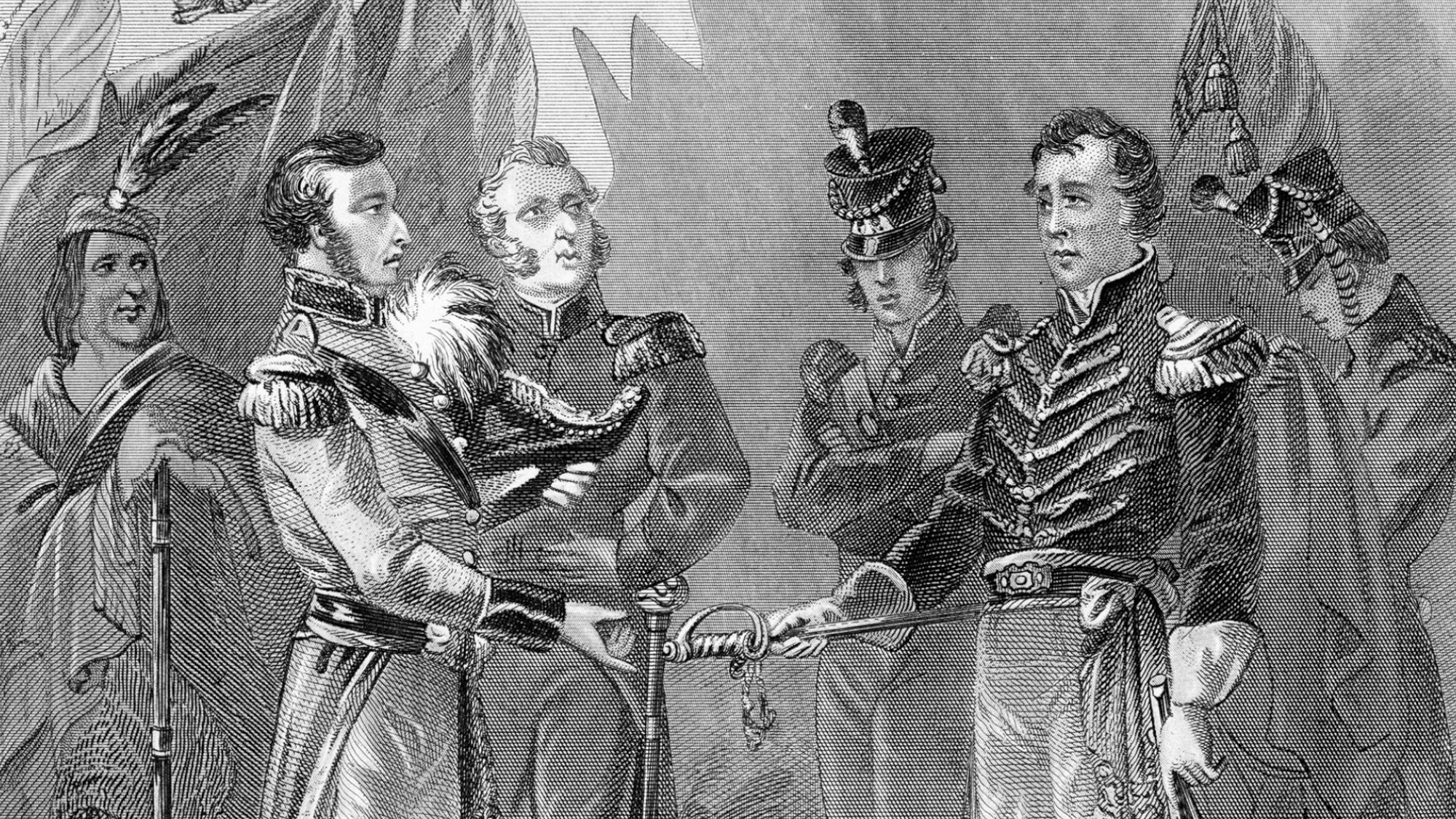
A free daily email with the biggest news stories of the day – and the best features from TheWeek.com
You are now subscribed
Your newsletter sign-up was successful
What sparked the war?
American anger at the British, the former colonial overlords who at the time ruled Canada. The already strained relationship between Britain and the fledgling U.S. hit a boiling point in the early 19th century. Britain, embroiled in the Napoleonic Wars with France, put a blockade on American trade ships bound for mainland Europe. And it seized thousands of American seamen and conscripted them into its undermanned Royal Navy. There was another source of tension closer to home: British support of Native American tribes along the Great Lakes, who used British-supplied weapons in raids on U.S. settlements and inhibited westward expansion. With the rallying cry "Free trade and sailors' rights!" President James Madison made America's first declaration of war. Hopelessly outgunned by Britain's formidable navy, the Americans targeted Canada, figuring its conquest would humble Britain and grant leverage in wresting concessions. For at least some Americans, there was also another purpose in striking north.
What was that motive?
It's one that President Trump might understand: a lust for new territory. "An incipient kind of manifest destiny" drove many in the rural South and what was then the American West, the territory stretching up the Mississippi basin to the Great Lakes, said University of Virginia historian John C.A. Stagg. And Canada seemed an easy target. It had a population of only 500,000, while the U.S. was home to 7.5 million, and Britain was busy battling France. Many Americans thought they'd be welcomed as liberators, because a large share of those living in what is now Ontario "were essentially Americans who had crossed the border because land was plentiful," says Canadian military historian Terry Copp. Acquiring Canada, said former President Thomas Jefferson, "will be a mere matter of marching."
How'd that work out?
Very badly. At the time, the U.S. Army was a ramshackle force of about 7,000 men, which included "too many incompetent officers and too many raw, untrained recruits," said historian Donald R. Hickey, author of several books on the war. And the logistical challenges of fighting on a remote frontier "were daunting if not insuperable." The Americans launched a three-pronged invasion—across the Detroit River and the Niagara River, and at Lake Champlain, N.Y.—but flopped at every juncture. In Detroit, U.S. Gen. William Hull, who had confidently declared that residents of Canada would be "emancipated from tyranny and oppression," surrendered to a much smaller force after falling for a bogus British document that warned of a vast approaching army of Native warriors. Hull was later court-martialed for cowardice. By January 1813, the American campaign had yielded only "disaster, defeat, disgrace, and ruin and death," said the Green-Mountain Farmer, a Vermont newspaper.
The Week
Escape your echo chamber. Get the facts behind the news, plus analysis from multiple perspectives.

Sign up for The Week's Free Newsletters
From our morning news briefing to a weekly Good News Newsletter, get the best of The Week delivered directly to your inbox.
From our morning news briefing to a weekly Good News Newsletter, get the best of The Week delivered directly to your inbox.
Did U.S. fortunes improve?
Marginally. The Americans racked up a number of victories in 1813, including surprisingly in naval battles on the Great Lakes and in the Atlantic. "It is a cruel mortification," said a cabinet member in London, "to be beat by these secondhand Englishmen upon our own element." The Americans reclaimed Detroit and captured York (now Toronto) and burned several government buildings. But hampered by desertion, a lack of coordination, and deaths from disease, hunger, and exposure, the Americans made little other headway into Canada. Things took a turn for the worse in 1814, when the British sent some 4,500 battle-hardened reinforcements across the Atlantic. Landing in Maryland, they marched on Washington, D.C., and set fire to the president's house—not yet called the White House—the House and Senate chambers, the Library of Congress, and other buildings. The conflagration could be seen from 50 miles away. With the U.S. demoralized, nearing bankruptcy, and mired in what amounted to a stalemate, many Americans wanted peace. "Most people understood that the USA would now be mainly on the defensive and Canada was now beyond our reach," said Hickey. Meanwhile, the British were exhausted by more than a decade of war and eager to be done with it.
How did the war end?
With a treaty signed in Ghent, now part of Belgium, on Christmas Eve, 1814. It restored the prewar northern borders, with both sides surrendering conquered territory. Given that the British had seized big chunks of Michigan and the Great Lakes, it amounted to "a pretty sweet deal" for the U.S., said University of Virginia historian Alan Taylor. The maritime issues that had ignited the war weren't even mentioned in the treaty—and a major American victory was still to come. Unaware a peace deal had been struck, some 7,500 British troops marched on New Orleans on Jan. 8, 1815. They were repelled by 5,000 defenders led by Gen. Andrew Jackson, who became a national hero and, in 1829, the seventh president.
What was the war's legacy?
It was an unhappy one for Native Americans along the frontier. Battered by the conflict, they lost their British backers and would soon be pushed aside by U.S. westward expansion. As for the primary combatants, both claimed victory. The Americans, buoyed by New Orleans and quick to forget the war's humiliations, celebrated their survival against a powerful foe. "It unified the country with a new sense of national purpose," said American historian Walter Borneman. It also gave a nationalist boost to the Canadians who'd repelled an attempted invasion and would gain nationhood in 1867. The 2012 bicentennial of the war was widely commemorated in Canada through museum exhibits and historical re-enactments. "It's a very defining moment for Canada," said Canadian military historian Mark Zuehlke. "If those invasions had succeeded, we probably wouldn't exist."
Gaming out an 1812 replay
No credible observer believes the U.S. will invade Canada. But President Trump's repeated references to Canada becoming "our cherished 51st state" have generated chatter up north about what would happen should America attack. If Trump did unleash the world's most powerful military, it is universally agreed "we don't stand a chance," said Canadian military historian Marc Milner. But that "would be just the beginning," said Aisha Ahmad, a political science professor at University of Toronto, who believes an invasion would ignite a decades-long Canadian insurgency. Toronto doctor Raghu Venugopal agrees resistance would run deep. "Many of us would rather have our eyes spooned out, be eviscerated, tortured, run over by tanks, than have anything to do with the United States," he said. Be that as it may, U.S. military historian Eliot Cohen emphasizes that nobody should take the "absurd" scenario of a U.S.-Canada war seriously. "My advice to my Canadian friends," said Cohen, "is: Don't give [Trump] the pleasure of getting upset."
A free daily email with the biggest news stories of the day – and the best features from TheWeek.com
-
 Bad Bunny’s Super Bowl: A win for unity
Bad Bunny’s Super Bowl: A win for unityFeature The global superstar's halftime show was a celebration for everyone to enjoy
-
 Book reviews: ‘Bonfire of the Murdochs’ and ‘The Typewriter and the Guillotine’
Book reviews: ‘Bonfire of the Murdochs’ and ‘The Typewriter and the Guillotine’Feature New insights into the Murdoch family’s turmoil and a renowned journalist’s time in pre-World War II Paris
-
 Witkoff and Kushner tackle Ukraine, Iran in Geneva
Witkoff and Kushner tackle Ukraine, Iran in GenevaSpeed Read Steve Witkoff and Jared Kushner held negotiations aimed at securing a nuclear deal with Iran and an end to Russia’s war in Ukraine
-
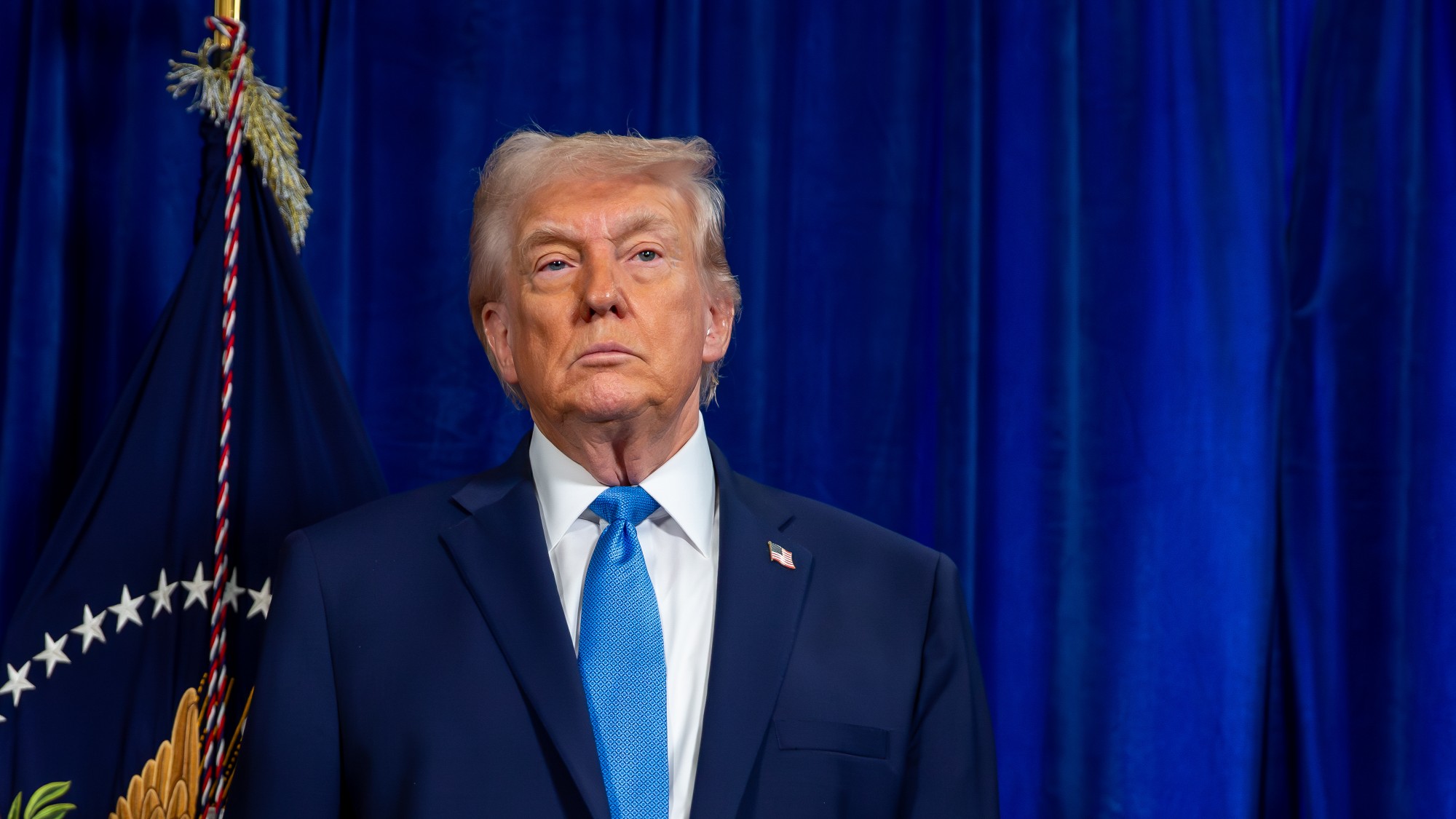 American empire: a history of US imperial expansion
American empire: a history of US imperial expansionDonald Trump’s 21st century take on the Monroe Doctrine harks back to an earlier era of US interference in Latin America
-
 Claudette Colvin: teenage activist who paved the way for Rosa Parks
Claudette Colvin: teenage activist who paved the way for Rosa ParksIn The Spotlight Inspired by the example of 19th century abolitionists, 15-year-old Colvin refused to give up her seat on an Alabama bus
-
 Decking the halls
Decking the hallsFeature Americans’ love of holiday decorations has turned Christmas from a humble affair to a sparkly spectacle.
-
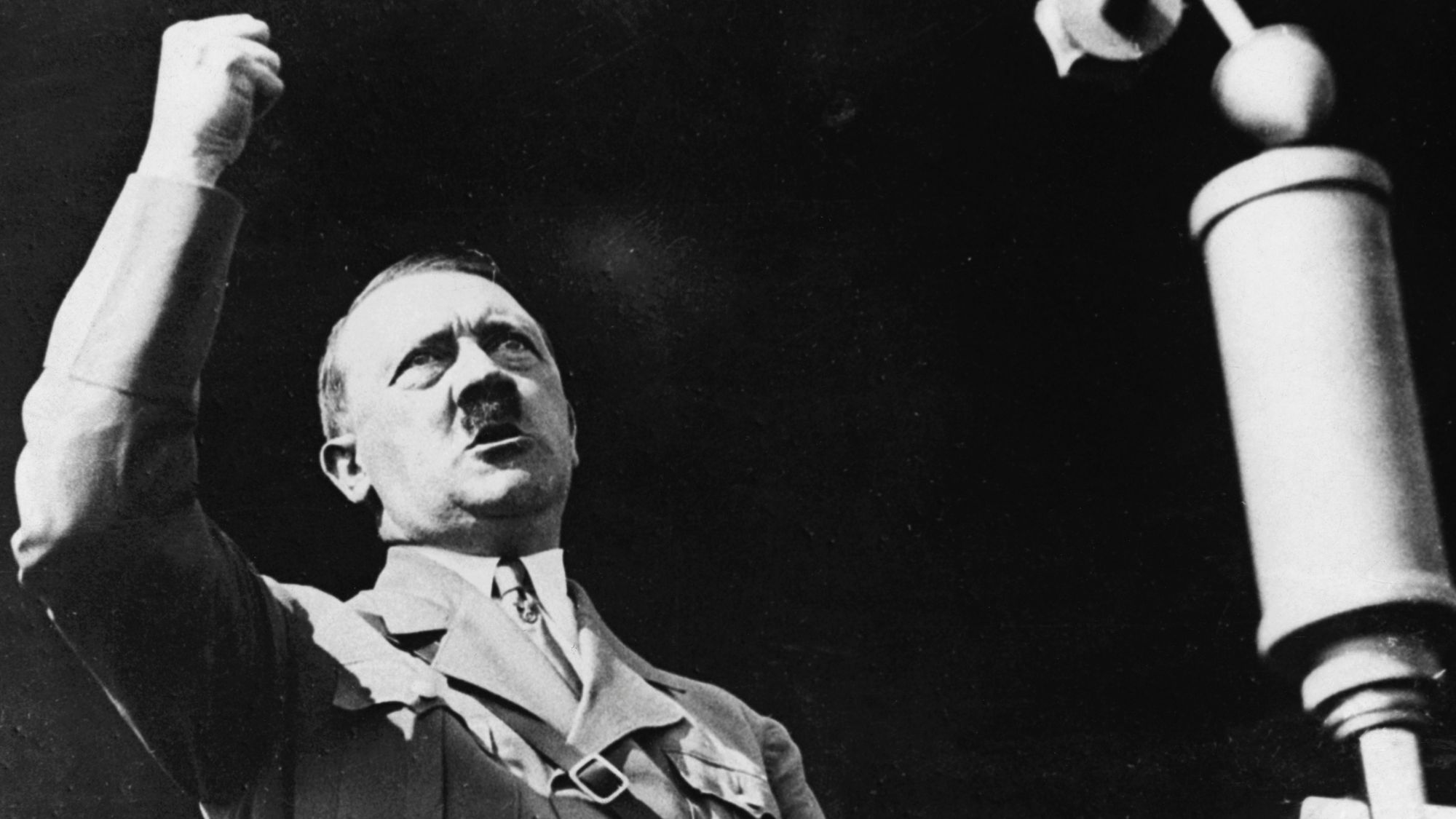 Hitler: what can we learn from his DNA?
Hitler: what can we learn from his DNA?Talking Point Hitler’s DNA: Blueprint of a Dictator is the latest documentary to posthumously diagnose the dictator
-
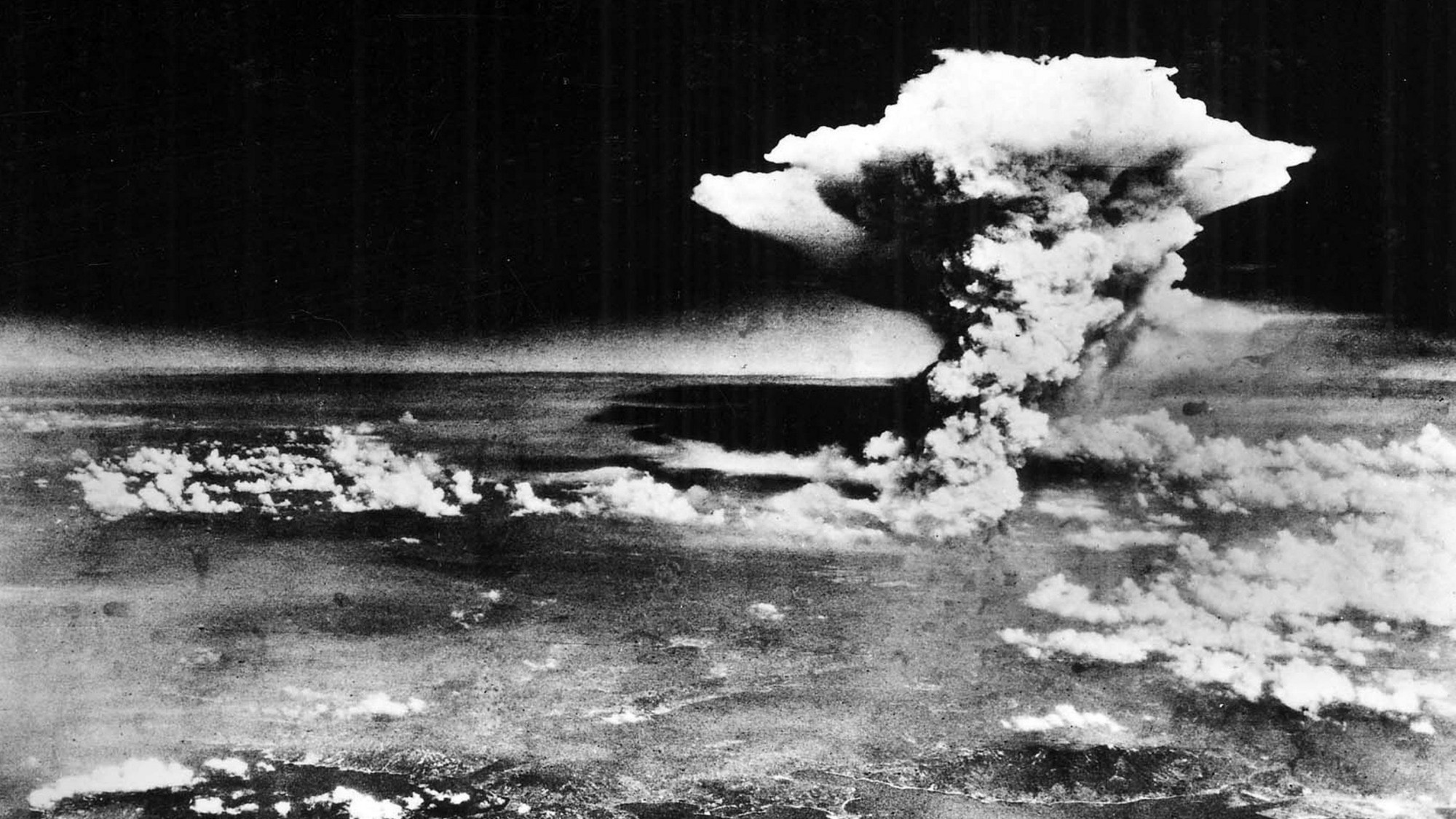 America's controversial path to the atomic bomb
America's controversial path to the atomic bombIn Depth The bombing of Hiroshima followed years of escalation by the U.S., but was it necessary?
-
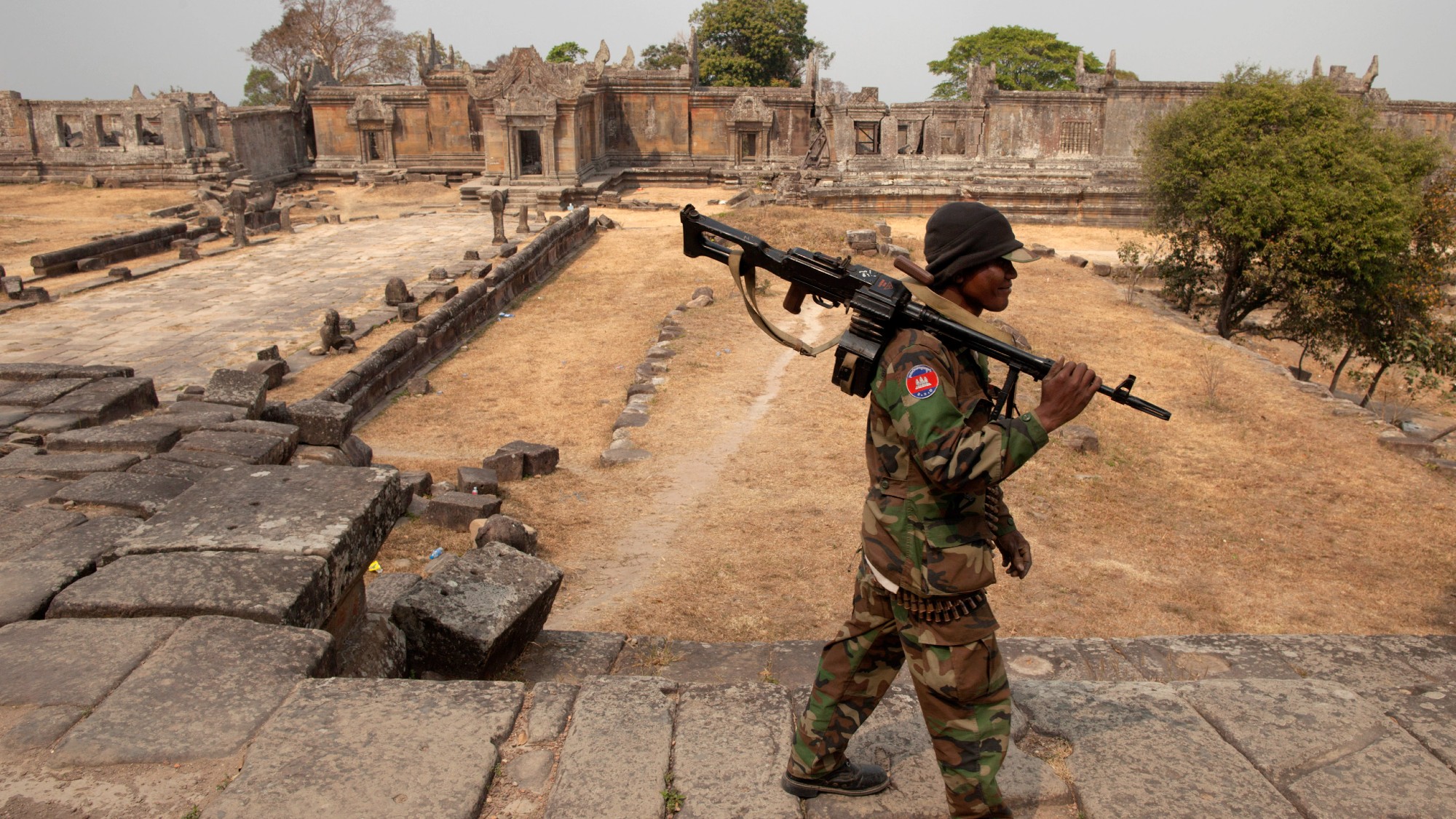 Thailand-Cambodia border conflict: colonial roots of the war
Thailand-Cambodia border conflict: colonial roots of the warIn Depth The 2025 clashes originate in over a century of regional turmoil and colonial inheritance
-
 The seven strangest historical discoveries made in 2025
The seven strangest historical discoveries made in 2025The Explainer From prehistoric sunscreen to a brain that turned to glass, we've learned some surprising new facts about human history
-
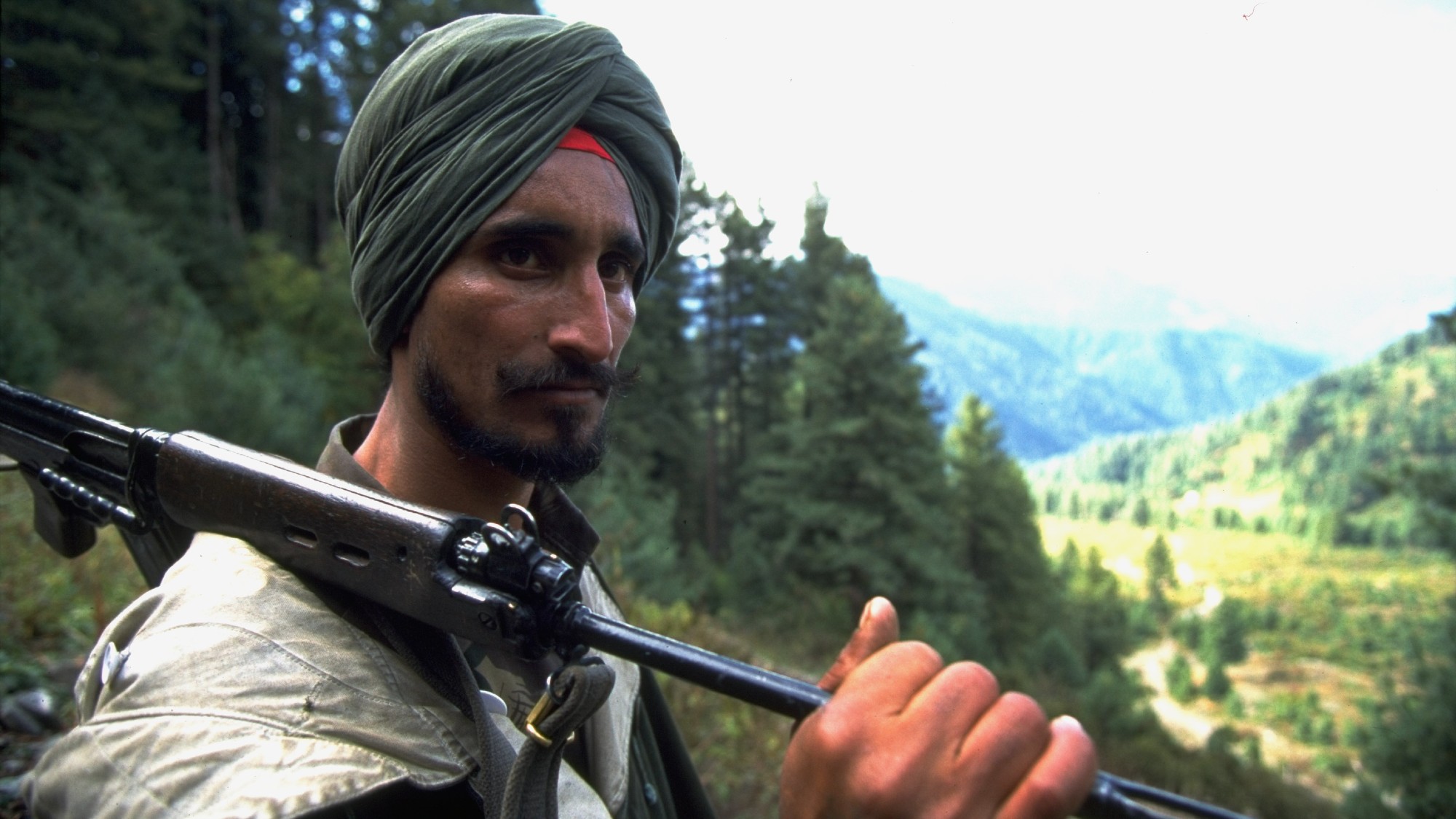 How did Kashmir end up largely under Indian control?
How did Kashmir end up largely under Indian control?The Explainer The bloody and intractable issue of Kashmir has flared up once again